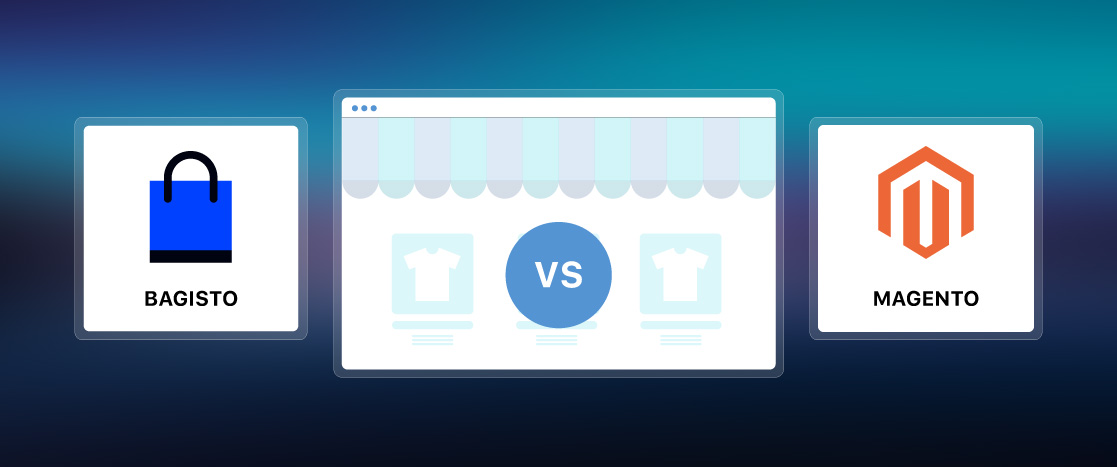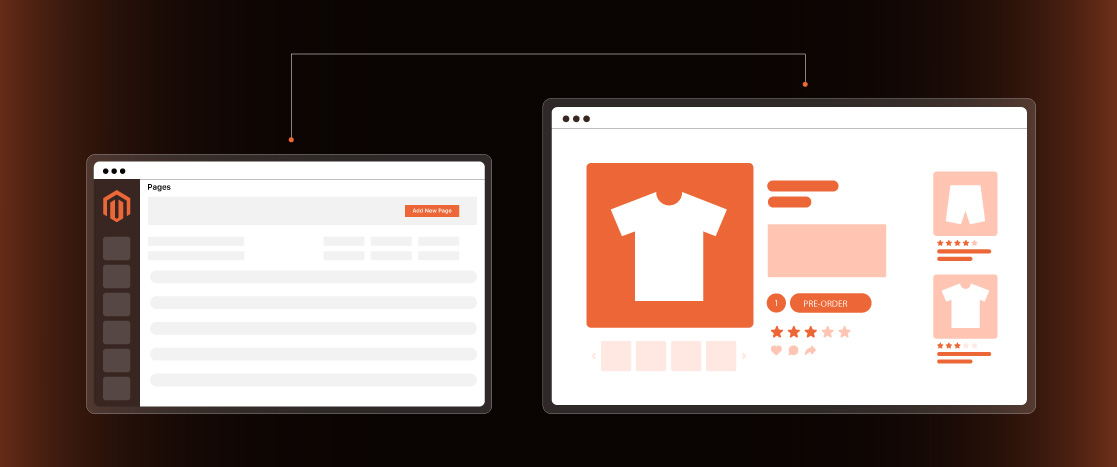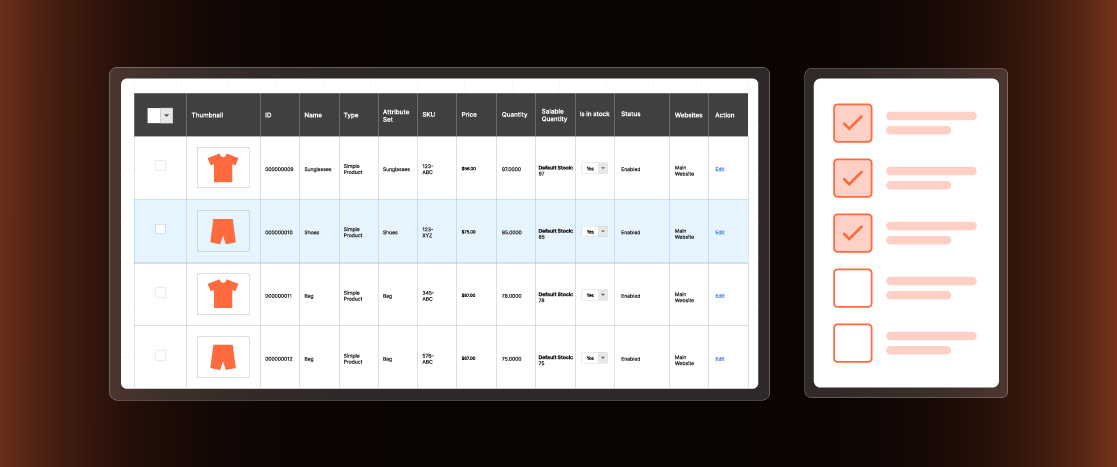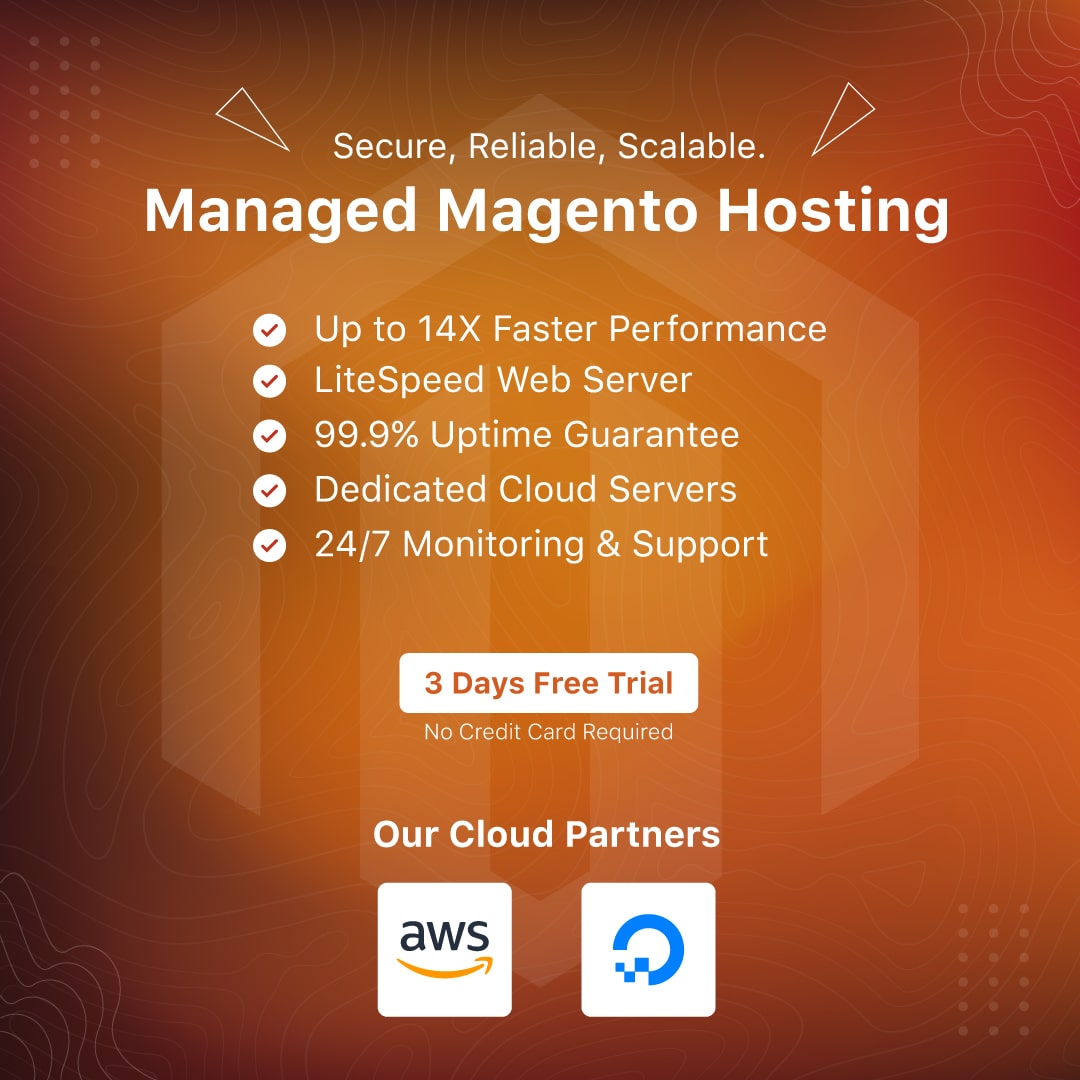
Magento 2 Frontend Tools For Developers
As Magento developers, we understand the importance of efficiency and optimizing our development workflows. That’s why we’re excited to share a collection of ten powerful Magento 2 frontend tools that can help you take your projects to new heights.
Whether you’re an experienced Magento developer or just starting your journey with this robust platform, these tools are designed to become your new go-to resources. Each has been carefully selected to fulfill your requirements and face the challenges during the whole process, from development frameworks to security solutions.
Just imagine you are able to save a lot of time during the development cycle while still delivering a seamless and high-performing user experience for your clients. That’s the power of these Magento 2 frontend tools. These tools can increase productivity through streamlined workflows.
You will also be provided with features like enhanced code quality and maintainability, improved security and compliance, seamless integration with your existing Magento 2 setup, and access to cutting-edge technologies and best practices.
So, get ready to revolutionize the way you approach Magento 2 development. Let’s dive in and explore how these Magento 2 frontend tools can unlock new levels of success for your ecommerce projects.
Top 10 Best Magento 2 Frontend Tools
Magento 2 provides a robust and flexible frontend experience for online stores. However, Magento 2 developers often rely on various tools to fully optimize and enhance the frontend capabilities. In this section, we will explore the top 10 best Magento 2 frontend tools that can grow your store’s user experience and frontend development efficiency.
Magento Debug

The Magento Debug Toolbar is a must-have tool for Magento 2 frontend developers. It provides a comprehensive set of debugging and performance optimization features for the front end of your Magento store. You can quickly identify and address layout, templates, blocks, and more issues with the Debug toolbar and streamline your development workflow.
Key Features
- Real-time display of page execution time and memory usage
- Detailed information about layout, templates, and blocks
- Ability to quickly switch between different store views
- Easy access to Magento configuration settings
- Integration with Xdebug for advanced debugging capabilities
Xdebug

Xdebug is a powerful debugging tool widely used in the Magento 2 development community. It provides advanced debugging features, such as stack trace analysis, variable inspection, and remote debugging, which can be helpful when tackling complex frontend issues.
Key Features
- Step-by-step code execution
- Breakpoint management
- Variable and memory inspection
- Profiling and code coverage analysis
- Integration with popular IDEs
PHPStorm

PHPStorm is an Integrated Development Environment (IDE) widely used by Magento 2 developers. It offers a comprehensive set of tools and features that can significantly enhance the frontend development experience, including code completion, refactoring, and easy integration with version control systems.
Key Features
- Intelligent code completion and refactoring
- Powerful debugging and profiling tools
- Integration with version control systems (Git, SVN, etc.)
- Seamless Magento 2 framework support
- Advanced code navigation and search capabilities
MageTool

MageTool is a command-line interface (CLI) tool that provides various functionalities for Magento 2 developers. It can significantly streamline your frontend development workflow by automating tasks such as clearing caches, generating module boilerplate code, and managing Magento extensions.
Key Features
- Cache management (explicit, flush, etc.)
- Module and extension management
- Database and schema tools
- Code generation and scaffolding
- Extensive plugin system for customization
EcomDev PHPUnit

EcomDev PHPUnit is a comprehensive testing framework for Magento 2 that focuses on the front end. It provides a wide range of testing features, including unit tests, integration tests, and functional tests, which can help ensure the stability and reliability of your Magento 2 front end.
Key Features
- Extensive set of pre-built test cases
- Support for Magento 2 data fixtures and modules
- Simplified test configuration and execution
- Integration with popular continuous integration tools
- Detailed reporting and test coverage analysis
Vue Storefront

Vue Storefront is a robust open-source frontend framework that you can seamlessly integrate with Magento 2. It provides a modern, headless, and high-performance frontend experience that can significantly enhance the user experience of your Magento 2 store.
Key Features
- Decoupled and flexible architecture
- Blazing-fast performance with Server-Side Rendering (SSR)
- An extensive set of pre-built components and features
- Optimized for Search Engine Optimization (SEO)
- Offline capabilities and Progressive Web App (PWA) support
Easy Template Path Hints

The Easy Template Path Hints is an extension for Magento 2 and a must-have tool for frontend developers. It provides an easy-to-use interface for quickly identifying the location of templates, layouts, and other frontend files, which can significantly speed up your development and debugging processes.
Key Features
- Displays template path hints directly on the frontend
- Supports both admin and storefront templates
- Ability to toggle template path hints on/off
- Easy configuration and integration into Magento 2 sites
Magento 2 Cache Clean

Magento 2 Cache Clean is a powerful extension that simplifies clearing Magento 2 caches. It provides a user-friendly interface for selectively clearing specific cache types, which can be especially useful when troubleshooting frontend-related issues.
Key Features
- Ability to clear individual cache types (layout, config, block, etc.)
- Scheduled cache cleaning based on custom intervals
- Integrated with Magento 2 admin panel
- Supports both manual and automated cache-clearing
ScandiPWA

ScandiPWA is a comprehensive suite of Magento 2 frontend development tools and utilities. It includes a wide range of features, such as a CSS/JS bundler, a LESS/SASS compiler, and a theme builder, all of which can streamline your Magento 2 frontend development workflow.
Key Features
- Integrated CSS/JS bundling and minification
- LESS/SASS compilation and easy reloading
- Visual theme builder and editor
- Automated frontend asset management
- Integration with popular frontend frameworks (React, Vue.js, etc.)
PWA Studio

Magento PWA Studio is a set of tools and libraries developed by Magento to build Progressive Web Applications (PWAs) for Magento 2. It provides a modern, responsive, and high-performance frontend experience that can significantly enhance the user experience of your Magento 2 store.
Key Features
- Decoupled architecture with Venia reference storefront
- Optimized for performance with Server-Side Rendering (SSR)
- Offline capabilities and installable web application
- Seamless integration with Magento 2 backend
- An extensive set of pre-built components and features
Comparison of Best Magento 2 Frontend Tools
Price Comparison
| Tool Name | Price |
| Magento Debug | Free |
| Xdebug | Free |
| PHPStorm | Free to $779/year |
| MageTools | Free |
| EcomDev PHPUnit | Free |
| Vue Storefront | Free |
| Easy Template Path Hints | Free to $35 |
| Magento 2 Cache Clean | Free |
| ScandiPWA | Free |
| PWA Studio | Free |
Features Comparison
| Tool Name | Debugging | Performance | Automation | Testing | Headless | PWA |
| Magento Debug | ✓ | ✓ | – | – | – | – |
| Xdebug | ✓ | ✓ | – | – | – | – |
| PHPStorm | ✓ | ✓ | ✓ | ✓ | – | – |
| MageTool | – | ✓ | ✓ | – | – | – |
| EcomDev PHPUnit | – | – | – | ✓ | – | – |
| Vue Storefront | ✓ | ✓ | ✓ | ✓ | ✓ | ✓ |
| Easy Template Path Hints | – | – | – | – | – | – |
| Magento 2 Cache Clean | – | ✓ | ✓ | – | – | – |
| ScandiPWA | ✓ | ✓ | ✓ | – | ✓ | ✓ |
| PWA Studio | ✓ | ✓ | ✓ | ✓ | ✓ | ✓ |
Which Magento 2 Frontend Tool is Best for You?
When it comes to choosing the best Magento 2 frontend tool, it ultimately depends on your specific requirements and development needs. If you’re primarily focused on debugging and performance optimization, tools like the Magento Debug Toolbar, Xdebug, and PHPStorm might best fit you.
(For more IDE or code editor options, you can always check this article on PHP code editors.)
On the other hand, if you’re looking to streamline your development workflow and automate various tasks, MageTool and Magento 2 Cache Clean could be great options. And for comprehensive testing capabilities, EcomDev PHPUnit is an excellent tool.
If you’re looking to implement a modern, headless, and highly performant front end, Vue Storefront and PWA Studio are excellent choices that can significantly enhance the user experience of your Magento 2 store.
Ultimately, the best Magento 2 frontend tool for you will depend on your project requirements, the preferences of your development team, and the specific features and functionalities you need to achieve your goals.
Conclusion
In this comprehensive guide, we’ve explored the top 10 best Magento 2 frontend tools to help grow your store’s user experience and streamline your development workflow. From powerful debugging and performance optimization tools like the Magento Debug Toolbar and Xdebug to modern frontend frameworks like Vue Storefront and PWA Studio, each tool on our list offers unique features and functionalities to address a wide range of Magento 2 frontend development needs.
As you start your Magento 2 frontend development journey, carefully consider your specific requirements and the features most beneficial for your project. Whether you’re focused on improving debugging and troubleshooting, automating everyday tasks, or implementing a cutting-edge, headless frontend, there’s a Magento 2 frontend tool on this list that can help you achieve your goals.
Magento 2 Frontend Tool FAQs
What is frontend in Magento?
The front end in Magento refers to the user-facing components of an ecommerce website built on the Magento platform. This includes the design, layout, and interactive elements that customers interact with when browsing and shopping in the store.
What are the frontend technologies for Magento 2?
Magento 2 uses various frontend technologies, including HTML, CSS, JavaScript, frontend frameworks (e.g., Knockout.js), preprocessors (LESS, SASS), and dependency managers (RequireJS, Composer).
How do you create a frontend in Magento 2?
Creating the frontend in Magento 2 involves setting up a development environment, understanding Magento’s frontend architecture, developing custom themes and layouts, implementing functionality, optimizing performance, and testing/debugging the frontend. Here is an article about headless ecommerce.
What is the Magento 2 backend?
The Magento 2 backend refers to the administrative and management components of the platform, including the Magento admin panel. This provides tools and features for managing products, orders, customers, content, and other e-commerce-related functionalities.
What are the benefits of using a headless frontend architecture in Magento 2?
Headless frontend architectures, such as those provided by tools like Vue Storefront and PWA Studio, offer improved performance, flexibility, and omnichannel experiences. They decouple the front end from the back end, allowing for faster development and deployment of updates.
How do Magento 2 frontend tools improve development workflows?
Magento 2 frontend tools can streamline development workflows by automating everyday tasks (cache management, code generation), providing advanced debugging and testing capabilities, and enabling efficient frontend asset management and optimization.
What types of frontend functionality can be implemented with Magento 2 tools?
Magento 2 frontend tools support various functionality, including custom theme development, interactive user interfaces, offline capabilities, progressive web app (PWA) features, and integrations with third-party frontend frameworks and libraries.
How do I choose the best Magento 2 frontend tool for my project?
Your project’s best Magento 2 frontend tool will depend on your requirements, development team expertise, project timeline, and integration with the Magento ecosystem. Evaluating features, performance, community support, and pricing can help you make an informed decision.







